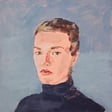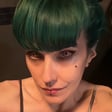
Jason Mayoh
I chatted with JASON MAYOH, author/director of ‘Tales of Rocky Point Park.’ It was an inspiring and delightful conversation that covered horror, childhood, comics, philosophy, the pandemic, the creative process, Rocky Point and more!!!
Many Americans enjoyed amusement parks in their childhood and in non-pandemic summertimes. Rhode Islanders and Southern New Englanders had Rocky Point park with its joys and fun and clam cakes and urban legends and weird accidents and horrors.
The legend of Rocky Point’s cursed FLUME Log Number 13 haunts Rhode Islanders to this very day. The same fear resonates in visions of the great VIKING who stood to protect (?) or attack (?) those who dared visit the HOUSE OF HORRORS. Did you jump off the SKYLINE and live to tell about it?
This is a Rhode Island story but it is also a story of Summers of Yore.
https://johnstonsunrise.net/stories/cranston-native-exposes-haunted-ri-,62453



















